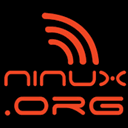Top Babel (protocol) Alternatives for Robust Network Routing
Babel is a sophisticated loop-avoiding distance-vector routing protocol designed for both IPv6 and IPv4. Renowned for its fast convergence properties, Babel draws inspiration from protocols like DSDV, AODV, and Cisco's EIGRP. It's particularly effective in diverse environments, from wired networks to challenging wireless mesh networks, and even boasts extensions for overlay networks. However, for various reasons—be it specific feature needs, open-source preferences, or community support—users often seek a compelling Babel (protocol) alternative. This article explores some of the best options available today.
Top Babel (protocol) Alternatives
While Babel offers impressive capabilities, a range of alternative routing and networking solutions might better suit your project's specific requirements. From decentralized mesh networks to comprehensive network management platforms, these alternatives provide diverse approaches to building robust and efficient communication infrastructures.

GNUnet
GNUnet is a powerful framework for secure peer-to-peer networking that distinguishes itself by not relying on any centralized or trusted services. As a free and open-source solution available on Mac, Windows, Linux, and BSD, it offers features like backup, decentralization, distribution, and robust mesh network capabilities, making it a strong Babel (protocol) alternative for those prioritizing security and a decentralized architecture.

LibreMesh
LibreMesh extends the OpenWrt router distribution with modules for creating self-configuring wireless and wired mesh networks, typically using ad-hoc Wi-Fi. It's a free and open-source Linux-based platform (also on OpenWrt and LEDE) focused on decentralized and distributed mesh networking, offering a practical Babel (protocol) alternative for community networks and rapid deployment.

telehash
telehash is an embeddable private network stack designed for various devices. It is a free and open-source solution, available on Mac, Windows, Linux, and JavaScript (via GitHub). While its summary doesn't list specific features, its focus on private, embeddable networking makes it an interesting Babel (protocol) alternative for developers seeking a lightweight, customizable communication layer.

OpenWISP
OpenWISP is a free and open-source software platform designed to implement comprehensive public Wi-Fi services. Self-hosted on Linux, it includes features like mesh networking and user management, making it a robust Babel (protocol) alternative for organizations looking to deploy and manage large-scale public or community wireless networks.

ninux
ninux is a wireless network community dedicated to creating and expanding a free, open, and experimental computer network. This free and open-source Linux-based initiative offers features like anonymity, censorship bypass, and mesh networking, positioning it as a unique Babel (protocol) alternative for those interested in community-driven, decentralized, and resilient network infrastructures.

Digitata
Digitatas, described as a 'digital tree,' aims to provide technology to the 'Digital Generation' under Open Hardware licensing by Open_Sailing and openet.org. This free and open-source platform, available on Mac, Windows, Linux, and Web, highlights anonymity as a key feature, making it a potential Babel (protocol) alternative for projects focused on privacy and open hardware principles.

Qaul
Qaul is an ad-hoc wireless mesh-network suite designed to leverage everyday devices like computers and smartphones to create a democratic, non-centralized mesh network. As a free and open-source C++ application available on Mac, Windows, and Linux, its core feature is mesh networking, offering a compelling Babel (protocol) alternative for decentralized, user-powered communication.

OLSR (Optimized Link State Routing)
OLSR is an optimized Link State Routing Protocol (LSRP) implementation specifically designed for Mobile Ad Hoc Networks (MANETs) on various devices, including routers, smartphones, and desktop computers. This free and open-source solution, available on Mac, Windows, Linux, Chrome OS, and Apple TV, offers features like anonymity, mesh networking, and wireless networking, making it a mature and robust Babel (protocol) alternative for mobile and dynamic environments.

CCNx
Project CCNx® is focused on developing, promoting, and evaluating a new communication architecture called content-centric networking. As a free and open-source project available on Mac, Windows, Linux, and tvOS, CCNx offers a fundamentally different paradigm for network communication compared to traditional IP-based routing, positioning it as an innovative Babel (protocol) alternative for those exploring future network architectures.
Choosing the right routing or networking solution depends heavily on your specific needs, whether it's the robustness of a mesh network, the privacy of a decentralized system, or ease of management. Explore these Babel (protocol) alternatives to find the best fit for your next project, ensuring a reliable and efficient network infrastructure.